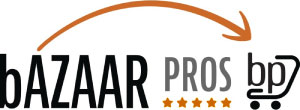Marketing automation is crucial to every business, no matter how big or small, if you want to stay competitive in your respective industry. Automation tools save your team time, increase productivity, allows for personalization when engaging with your audience, and thus increases sales by allowing you to keep up with all of your contacts, campaigns, and track results from one platform. Which marketing automation tool is right for you? Let’s compare three of the most popular platforms: HubSpot, Klaviyo, and ActiveCampaign
Features
HubSpot
HubSpot is a comprehensive CRM platform that gives users the tools they need to succeed and grow in one place. It offers four different service areas: marketing, CRM & Sales, Customer Service, and CMS. Users can manage website content, create landing pages, deploy campaigns, email tracking, deal pipelines, results tracking, and so much more.
Klaviyo
Klaviyo is a popular email marketing software platform. It is designed to help businesses build and scale their brand, transition brick and mortar stores into the online space, and more. This platform offers powerful email and SMS marketing automation and tracking that can either be used separately or in unison.
ActiveCampaign
ActiveCampaign is an email marketing first and CRM second platform that encompasses email marketing, marketing automation, and sales automation. Unlike other tools on the market, ActiveCampaign focuses on email marketing and lets CRM take a backseat. It does offer advanced integrations for those who have CRMs such as SalesForce. Email tracking is available in the Lite version and above, while deal pipelines are available in the plus and above.
Best for B2B, B2C, or Ecommerce?
HubSpot is geared more towards B2B companies, while Klaviyo is designed for B2C companies and eCommerce. ActiveCampaign is an ideal solution for both B2B and B2C organizations.
Number of Free Contacts
HubSpot
HubSpot allows storage of up to 1 million non-marketing contacts free of charge. Users can choose which contacts are marketing contacts. The number of marketing contacts allowed depends on the plan. The starter plan allows up to 1,000 contacts, the professional plan has a limit of 2,000 contacts, and the enterprise plan allows a maximum of 10,000 contacts. If you need more contacts for your specific plan, you can purchase additional space.
Klaviyo
Up to 250 free contacts are allowed with the free version.
ActiveCampaign
A maximum of 100 free contacts is allowed with the 14-day free trial.
Contract Period
HubSpot offers both monthly and annual subscription plans that you can cancel at any time. ActiveCampaign offers only monthly subscriptions, but like HubSpot subscribers can cancel at any time. Klaviyo is a little different from the other two. Since it is pay-as-you-go, there is no monthly or annual commitment.
Pricing
HubSpot
When it comes to pricing, HubSpot has perhaps the most complicated pricing structure. With that being said, they have something for every budget, which is appealing. HubSpot offers several different plans in 4 different categories (marketing, CRM & Sales, Customer Service, CMS). Clients can choose one or more at a price point they are comfortable with. There are forever free plans for each category and starter plans that begin at $45/month. Predesigned bundles are also available, beginning at $50/month. If none of the bundles fit your needs, you can create a custom bundle. Clients can choose between monthly and yearly subscriptions with a slight discount for those who choose an annual plan.
Klaviyo
Thanks to Klaviyo’s unique pay-as-you-go pricing model, any number of contacts can be accommodated without paying for space you do not need. There is a free version of the email side that allows up to 250 contacts and 500 email sends. The pricing structure is tiered based on the number of contacts and email sends needed. SMS is 1 cent per send, and MMS is 3 cents per send. There are no monthly or annual commitments.
ActiveCampaign
Pricing begins at $9/month and a maximum of 500 contacts and increases if you choose a higher tier package with more contacts. ActiveCampaign does offer a 14-day free trial with a maximum of 100 contacts, and 100 email sends. The trial version has all of the features of the professional plan. Once the trial expires, you can manually upgrade or just let it expire if you do not wish to continue using ActiveCampaign. All plans are on a monthly subscription basis with no contract.
Our Recommendations
HubSpot
HubSpot is a robust platform ideal for B2B medium-sized companies and enterprises who have or plan on having a larger sales team that requires sophisticated CRM, deal pipelines, email scheduling, and tracking.
Klaviyo
This is a simplified platform that is great for small and large B2C and eCommerce businesses. One of the best parts of Klaviyo is that it allows the set-up of multiple email automation that is inherent to the eCommerce ecosystem.
ActiveCampaign
ActiveCampaign is ideal for small B2B or B2C businesses that need to send out frequent emails and newsletters without the need for a robust CRM.
We work with all these three platforms and certified partners. We recommend them in the following order:
- Klaviyo: Ecommerce website online businesses
- Active Campaign: Ecommerce business + B2B partners and retailers to be tracked.
- Hubspot: B2B long sales cycle service or product businesses

